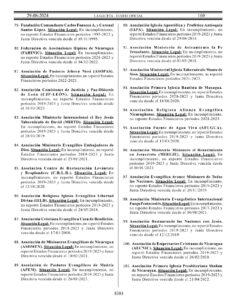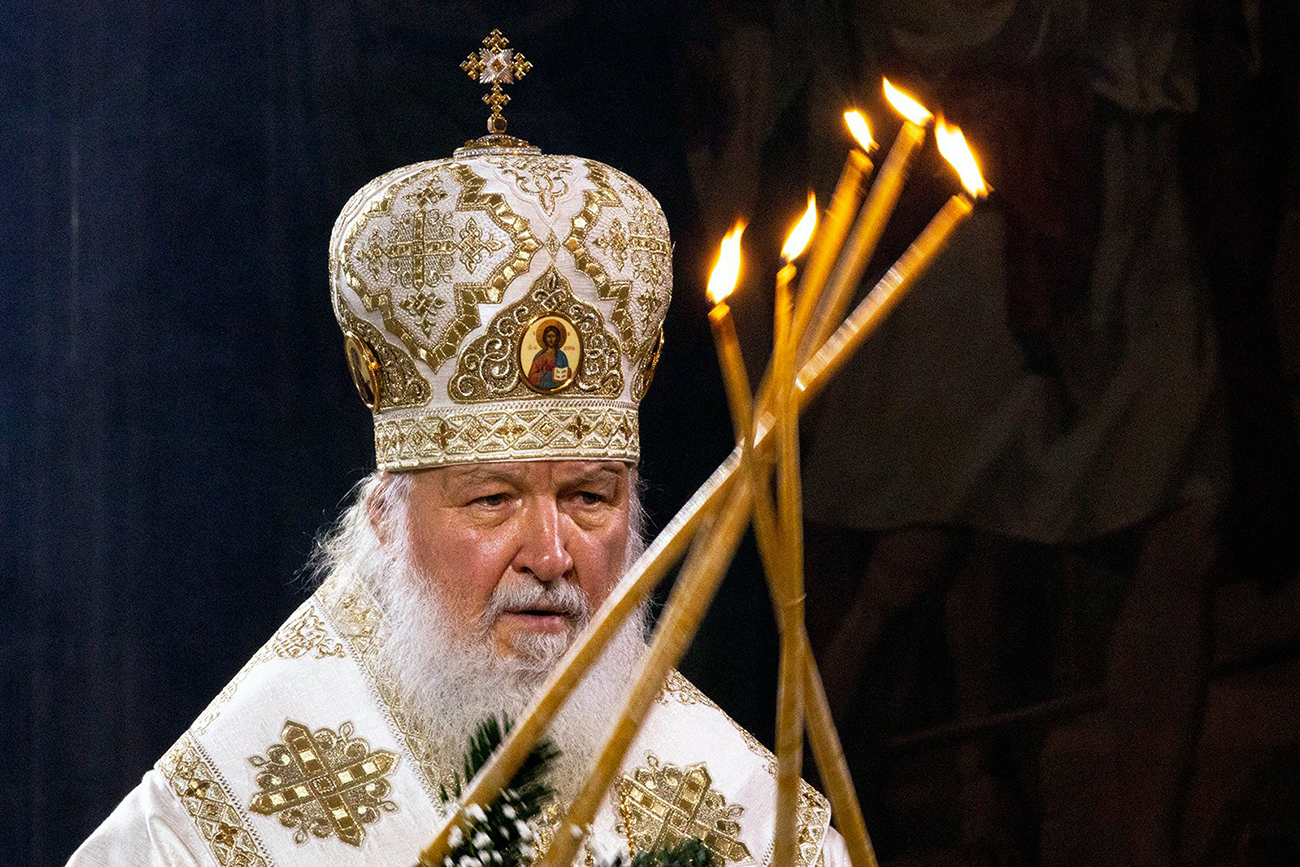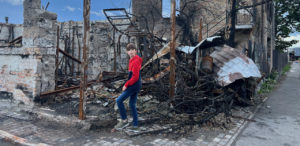Nicaraguan government cancels religious organizations
Primera Iglesia Bautista of Managua is among more than 90 religiously oriented civil organizations that had their legal status revoked by the Nicaraguan government last week.

Nicaragua’s Ministry of the Interior published a list Aug. 29 of 169 nongovernmental organizations—including 92 religiously affiliated organizations—whose legal status was cancelled.
However, the church’s Facebook page included a video of its Sept. 1 worship service, casting some doubt on what the change in legal status means for the church—at least in terms of religious assemblies, if not its community-oriented ministries.
A representative for Christian Solidarity Worldwide, a United Kingdom-based human rights organization, said the Nicaraguan government apparently has allowed many organizations on the published list to remain open while negotiating ways for them regain legal status—likely by submitting to “much more intrusive oversight” of their day-to-day affairs, activities and finances.
The revocation of legal status for 169 NGOs followed on the heels of an earlier government action, cancelling the legal status of 1,500 nonprofit organizations. Since 2018, Nicaragua President Daniel Ortega and Vice President Rosario Murillo have revoked the legal status of more than 5,500 organizations, Christian Solidarity Worldwide reported.
The government announced all property—land, buildings and furnishings—associated with the organizations whose legal status was cancelled will be transferred to the government.
Repression expanded to include Protestant groups
Previously, the government cancellations of religious organizations’ legal status focused on the Roman Catholic Church in areas where church leaders spoke out against human rights violations by the government.
The latest round of cancellations expanded to include Protestant and evangelical organizations, along with other nonprofits that have not been as politically vocal.
Organizations that had legal status revoked included the Nicaraguan Evangelical Alliance and the Latino-Islamic Cultural Association, along with “scores of Protestant churches,” Christian Solidarity Worldwide reported.
Protestant denominations affected included the Episcopal Church of Nicaragua, the Moravian Church of Nicaragua and the Christian Reformed Church of Nicaragua.
Even before the latest governmental actions, the U.S. Commission on International Religious Freedom condemned the Ortega-Murillo administration for “severely deteriorating religious freedom conditions in Nicaragua.”
In a report released June 28, the commission stated: “Nicaragua’s government continues to repress the Catholic Church for its human rights advocacy by arbitrarily arresting, imprisoning and exiling clergy and laypeople and shuttering and seizing the property of Catholic charitable and educational organizations.
“As Ortega and Murillo seek to maintain their hold on power, the authorities have been using similar tactics to oppress Protestant denominations.”
The commission noted the Nicaraguan government has “resisted any international scrutiny of their religious freedom violations including by withdrawing from the Organization of American States (OAS), expelling OAS staff from its territory, and refusing to cooperate with the United Nation Group of Human Rights Experts on Nicaragua.”
In its 2024 annual report, the U.S. Commission on International Religious Freedom recommended the U.S. Department of State again designate Nicaragua as a County of Particular Concern for “engaging in systematic, ongoing and egregious violations of religious freedom.”
Concerns about impact on social fabric
Christian Solidarity Worldwide repeatedly has condemned the Nicaraguan government for its actions—including the most-recent revocation of legal status for nongovernmental organizations.
“Once again, CSW strongly condemns the Nicaraguan government’s arbitrary cancellation of the legal status of another 169 independent civil society organizations. We call on the international community to do the same,” said Anna Lee Stangl, the organization’s head of advocacy.
“The arbitrary cancellation of historic and diverse religious associations is, in many cases, leaving their members with nowhere to gather for religious purposes, but they are not the only people who will be affected.
“We are also highly concerned about the impact on the thousands of children and adults who interacted with the schools, and other institutions—like hospitals—run by these organizations. Many of the affected associations form a key part of the social fabric and culture of their locales.”
For example, Baptists in Nicaragua operate one of the top-ranked hospitals in the country, a seminary and schools that serve thousands of children.
“We continue to stand in solidarity with those who have dedicated their lives to the improvement of their communities only to see it all arbitrarily taken away by a totalitarian government interested only in its own survival,” Stangl said.
EDITOR’S NOTE: After this article originally was published Sept. 4, Christian Solidarity Worldwide provided this additional information from a confidential source: “While the First Baptist Church of Managua has been permitted to remain open and carry on with its activities despite the legal cancellation, its bank accounts were frozen, and they are no longer allowed to receive funds from outside Nicaragua. The source noted that a conservatory belonging to the Baptist Convention was confiscated by the government when they confiscated the Polytechnic University (which was affiliated with the Baptists) a few years ago.”


